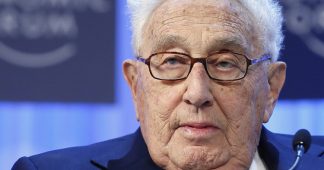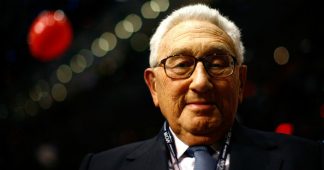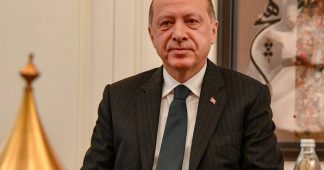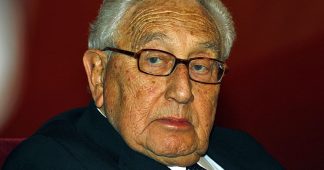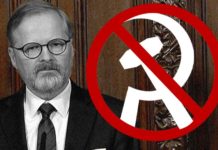By Anuradha Chenoy*
For the Global South, Kissinger could well be called Dr. Death. He insured that whichever country raised a voice or could potentially show opposition to the US would have their head bashed in. This was Kissinger- grand strategist for the US empire, enforcer of imperialism, godfather of the current Neocons (Neo Conservatives) steadfast theorist and practitioner of Realism in international relations.
For Kissinger people of the Global South were just abstractions because he presented the world as a 3D chessboard where he, national security advisor and secretary of state – to President Richard Nixon had a free hand to knock down and take out pieces. For him, as manager of US policy, lives, livelihoods of people in the ‘darker continents’ did not matter.
From 1969 to 1973 Kissinger sanctioned intensive bombings of North Vietnam, simultaneously directed the carpet bombing of large parts of Cambodia that US intelligence claimed sheltered insurgents from South and North Vietnam. At the same time, he assisted in organizing a ‘secret war’ on Laos. In all these wars, Kissinger approved the dropping of millions of tons of bombs killing millions of civilians in nations mired in poverty.
Vietnam. Laos and Cambodia remain littered with US landmines, victims of the chemical warfare like Agent Orange never got reparations. These wars led to brutal regimes like the Khmer rouge in Cambodia. Kissinger negotiated with North Vietnam in the Paris Peace talks 1969-73, where recent documents show that he purposefully prolonged the war in US interests. The direct interventions of Kissinger qualify as war crimes under international humanitarian law.
Kissinger had a bloodied hand along with Pakistan’s General Yahya Khan, giving support to Pakistan even while aware of the genocide unleashed on Bangla nationalists in East Pakistan’s Mujibur Rehman led liberation struggle. Three million people became victims. India intervened in what became Bangladesh. Kissinger had the US 7th Fleet come into the Indian Ocean to threaten India at a period of poor India-US relations.
Latin America felt the Nixon-Kissinger hand, as they invested millions of dollars to foment a coup against the progressive democratically elected president of Chile, Salvador Allende in 1970. The US then supported the military coup by General Augusto Pinochet a dictator who curbed any dissent and under whom over 3,000 people were disappeared or killed. Kissinger supported the overthrow of the Argentinian government of President Isabel Peron by a neo-fascists dictatorship that disappeared 30,000 and killed 10,000 leftist and other opponents, in a rule that lasted till 1983. There was no recrimination or apology. As for the US they do not believe in accountability for these mass murders.
Kissinger pushed the Greek junta he was controlling to make a coup in Cyprus against Makarios, in order to provide Turkey with the pretext it needed to invade the island. US, Britain and Israel have never accepted a sovereign state in Cyprus which occupies one of the most important strategic locations on Earth and has been one of the pioneers of the Non – Aligned Movement. The 1974 coup in Nicosia was the exact copy of the 1973 Santiago coup.
In 1975 he gave the green signal to President Suharto of Indonesia to invade East Timor; had a big hand in West Asia when the 1973 war broke out when Arab countries led by Egypt and Syria attacked Israel, Kissinger’s policy was to ‘isolate the Palestinians’ and arm the Israelis. No doubt the current Neocons have studies these doctrines with care.
Of course Kissinger was involved in using the split between the Soviet Union and China to wing a deal and détente between the US and China, opening the way for Chinese globalization. He also crafted arms limitations treaties with the Russians, now undone. In his later years he saw China as the biggest threat to USA and so argued that Ukraine be neutral, only to change his mind towards the end.
To fuel the US’s endless wars, Kissinger- Nixon in 1973 created a deal between the US and Saudi Arabia by which the Saudis and later other oil exporting Arab countries agreed to price and trade oil in US dollars. This petrodollar meant every oil sale would go through US banks, contributing significantly to dollar hegemony.
Kissinger, known to care less for international law and legalities wrote: “our relations with Europeans are better founded on developing a community of interests than on the elaboration of formal legal obligations.” (Kissinger, 1969). He obviously approved of this rules based order coined by Biden and West that favor rules that suit their exceptionalism.
It will be worthwhile for countries of the Global South to reflect on Kissinger’s words where he wrote that as far as the newly independent countries are concerned, the option for the West is, “the deliberate exploitation of their weak domestic structure. In many areas the ability to foment domestic unrest is a more potent weapon than traditional arms.” (Kissinger, Domestic Structure and Foreign Policy, 1969).
These formulae by Kissinger, continue to be used by the US in different ways and the Global South needs to be vary of these continuities as recent wars and interventions reveal. So, if the Global South wants to make its own sovereign choice in national or foreign policy, there is plenty of history to learn from, so as not to repeat it.
*I am grateful to the Transnational Institute (The Netherlands)
Anuradha Chenoy is writer, Associate Fellow of the Transnational Institute, Professor, former Dean of the School of International Studies, Jawaharlal Nehru University, former chairperson and director of the Centre for Russian and Central Asian Studies, India
Also read
Henry Kissinger: The first Jewish Secretary of State, America’ most notorious criminal
We remind our readers that publication of articles on our site does not mean that we agree with what is written. Our policy is to publish anything which we consider of interest, so as to assist our readers in forming their opinions. Sometimes we even publish articles with which we totally disagree, since we believe it is important for our readers to be informed on as wide a spectrum of views as possible.
